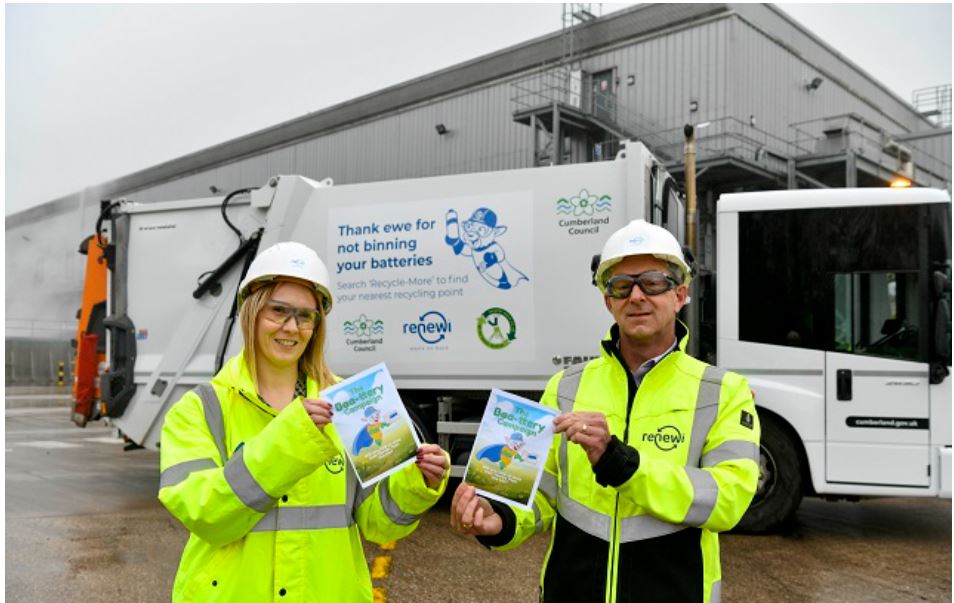The new targets were published today (10 December) alongside the proposal that producers of rechargeable electric vehicle and industrial batteries sold in Europe must disclose their carbon footprint from 2024 and comply with a CO2 emissions limit from 2027.
Europe’s battery demand is set to increase 14-fold this decade, the Commission says, spurred by Europeans’ increased use of electric vehicles.
Commissioner for environment, oceans and fisheries Virginijus Sinkevičius said: “With this innovative EU proposal on sustainable batteries we are giving the first big push to the circular economy under our new Circular Economy Action Plan.
“Batteries are essential for crucial sectors of our economy and society such as mobility, energy and communications.
“This future-oriented legislative toolbox will upgrade the sustainability of batteries in each phase of their lifecycle. Batteries are full of valuable materials and we want to ensure that no battery is lost to waste. The sustainability of batteries has to grow hand in hand with their increasing numbers on the EU market.”
Since 2006, batteries and waste batteries have been regulated at European Union level under the Batteries Directive (2006/66/EC). The commission says a modernisation of the framework is necessary because of changed socioeconomic conditions, technological developments, markets, and battery uses.
Proposals
Under the Commission’s proposals, an obligation to disclose the content of recycled raw materials in those batteries would apply from 2027. This would be followed by requirements to use a minimum share of recycled cobalt, lithium, nickel and lead from 2030.
“This future-oriented legislative toolbox will upgrade the sustainability of batteries in each phase of their lifecycle”
The proposal includes the development of minimum requirements for rechargeable and non-rechargeable portable batteries of general use by 1 January 2026, as well as for rechargeable industrial batteries.
And, the Commission proposes to develop the current requirement on battery removability obliging manufacturers to design appliances in such a way that waste batteries can be easily removed.
The Commission hopes the measures it proposes will facilitate achieving climate neutrality by 2050.
Brexit
John Redmayne is the managing director of the European Recycling Platform, a producer compliance scheme. He told letsrecycle.com the significance of the proposal to the UK hinged on last night’s high-stakes dinner in Brussels between Prime Minister Boris Johnson and Ursula von der Leyen, the President of the European Commission, where the two politicians attempted to thrash out a Brexit deal.

Mr Redmayne said: “In all the noises made by government so far, the UK has always flagged up this review as significant. It’s tempting to say that in the event of no deal the review is no longer relevant, but it’s not that simple in policy terms.
“The UK and producers would expect and prefer if not absolute harmonisation then significant similarities. We won’t really know how similar things will be until the UK’s battery consultation comes out in a year’s time.”
Mr Redmayne told letsrecycle.com a consultation on changes to UK battery legislation was to come out in the fourth quarter of 2021. He said it was “almost better” the UK’s consultation was coming out after the European Commission’s.
“It gives plenty of time for Defra and other UK stakeholders to assess broad policy direction,” he said. “It allows the UK to at and assess the European direction and decide whether to follow everything or just some of it.”
Environmental objectives
The British and Irish Portable Battery Association (BIPBA) is the trade association for the portable battery industry in the UK.
A BIPBA spokesperson said: “We note with interest today’s publication of the European Commission’s proposal for its new batteries regulations. As the UK reviews its own batteries regulations in the coming months, we will be working closely with the government to ensure that the UK’s own environmental objectives are realised, both now and in the future, but more clearly based on the realities of the battery market and developments in technology.”











Subscribe for free